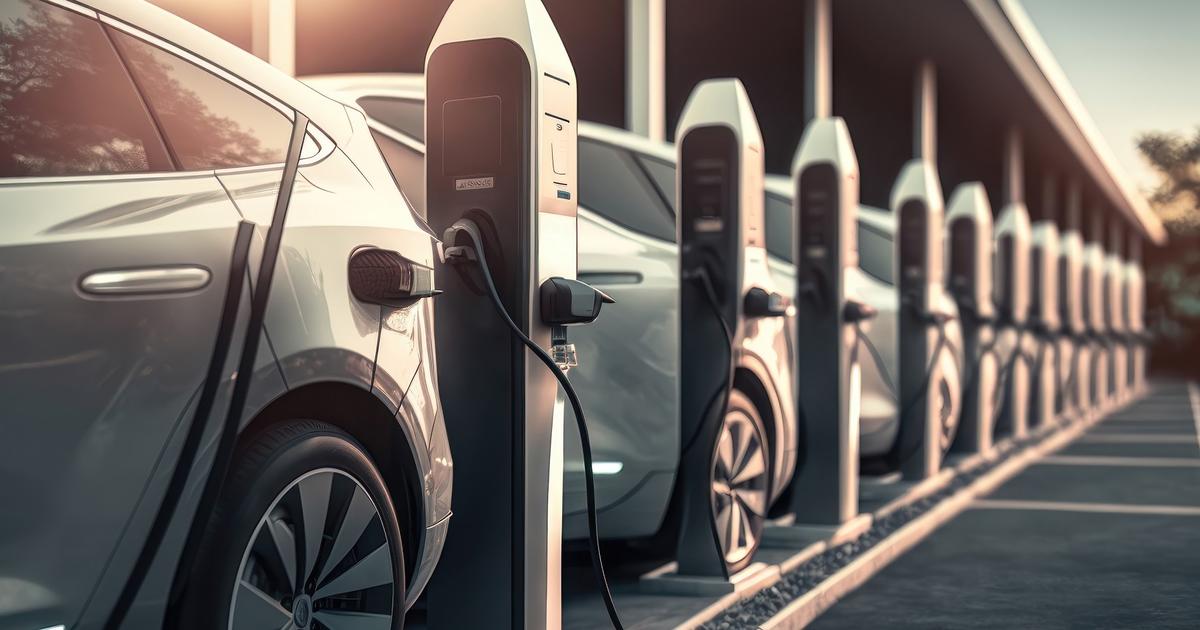Servo Motors in EV Charging Infrastructure: Boosting Efficiency in High-Power Charging Stations
In particular, high-power charging stations—those that can deliver rapid charging in a short amount of time—are essential for addressing the growing needs of EV drivers. One technology playing an increasingly important role in the efficiency and functionality of these stations is the servo motor. Servo motors provide precise control over various aspects of the charging process, helping to optimize performance and enhance the overall user experience.
In this article, we will explore how servo motors contribute to the efficiency of EV charging infrastructure, particularly in high-power charging stations. We’ll also discuss the advantages of using servo motors in this application, as well as highlight key benefits for both users and operators of charging stations.
The Role of Servo Motors in EV Charging Infrastructure
High-power EV charging stations operate with complex systems that involve managing current, voltage, and heat while delivering large amounts of power. Servo motors, with their ability to provide precise control, offer significant benefits for controlling various components in these stations. From adjusting the charging cable’s position to managing cooling systems and power delivery modules, servo motors ensure that the station functions smoothly and efficiently.
Key Functions of Servo Motors in Charging Stations
- Charging Cable Management
Cable management is one of the most obvious functions of a servo motor in a charging station. Servo motors can adjust the length and positioning of the charging cable automatically, allowing for a more user-friendly experience. Whether it’s retracting or extending the cable, servo motors provide the necessary force and precision to prevent damage while ensuring the cable is positioned correctly for charging. - Cooling Systems
High-power charging stations produce a lot of heat, which might shorten the system’s lifespan and impair its functionality. Servo motors play a role in cooling systems by regulating airflow through fans or pumps. This precise control helps maintain optimal operating temperatures, ensuring that the station can deliver consistent power without overheating or causing damage to sensitive components. - Power Electronics Control
Managing the delivery of high voltage and current requires precise control over power electronics. Servo motors are commonly used in power converters and other electrical systems within charging stations. They help control the position of switches and other components, ensuring that the charging process is smooth, safe, and efficient. By using servo motors, charging stations can better regulate the flow of electricity, optimizing the speed and efficiency of charging for EV users.
Efficiency Gains with Servo Motors
Servo motors contribute to overall efficiency in EV charging stations in several ways. By improving the control and precision of various components, servo motors reduce energy waste, improve safety, and enhance the user experience. Below are some key efficiency benefits:
1. Precision Control and Energy Savings
High-power EV chargers can maximize power consumption because to the precise control that servo motors give. Efficiency is increased and less energy is used as a result. Servo motors also contribute to the reduction of mechanical component wear and tear, prolonging the life of vital infrastructure and lowering maintenance expenses.
2. Enhanced Charging Speed
Servo motors enable high-power charging stations to deliver faster and more consistent charging by managing voltage and current delivery more effectively. The precise adjustments made by servo motors allow stations to provide the maximum safe level of power to the vehicle, reducing charging time for users.
3. Optimized Thermal Management
Efficient thermal management is essential in preventing overheating during high-power charging. By integrating servo motors in cooling systems, charging stations can ensure better control of temperatures, minimizing the risk of shutdowns and ensuring consistent operation even during peak demand.
4. Improved Safety
Servo motors also play a key role in improving the safety of high-power EV charging stations. They can assist in regulating electrical systems and components to lower the possibility of overheating, electrical failures, and other dangers. Servo motors assist to the charging infrastructure’s dependability and safety by guaranteeing precise control.
The Role of AC Servo Motors in EV Charging Stations
For many high-power EV charging stations, AC servo motors are a popular choice due to their high efficiency, robustness, and precision. AC servo motors can handle the demands of both high-speed and low-speed applications, making them versatile for use in various systems within the charging infrastructure. Their ability to perform reliably in harsh environments also makes them ideal for outdoor charging stations, where they may be exposed to extreme temperatures and weather conditions.
In addition, AC servo motors are known for their low energy consumption and ability to deliver precise control with minimal noise and vibration. These attributes are particularly beneficial in the demanding context of high-power EV charging, where performance, reliability, and efficiency are critical.
Benefits for EV Charging Station Operators
For EV charging station operators, integrating servo motors into their infrastructure offers several benefits. These include:
- Reduced Operational Costs: With servo motors’ energy efficiency and reduced maintenance requirements, operators can lower their operational costs over time. The charging stations’ longevity is also influenced by the servo motors’ lifespan.
- Increased Customer Satisfaction: The precision and control offered by servo motors lead to a better user experience, with faster and more reliable charging times. This encourages repeat usage of charging stations by EV drivers.
- Scalability and Flexibility: As EV charging stations expand to handle more vehicles or higher power requirements, servo motors can easily be integrated or upgraded to accommodate these changes. They are a future-proof answer to changing EV charging requirements because of their scalability.
Conclusion
Servo motors are playing an increasingly important role in enhancing the efficiency and performance of high-power EV charging stations. From managing charging cables and cooling systems to optimizing power delivery and improving safety, these motors offer precise control that is crucial for the functionality of modern EV infrastructure. For servo motor manufacturers, this growing demand presents a significant opportunity to provide advanced solutions to support the rapidly expanding EV market.




